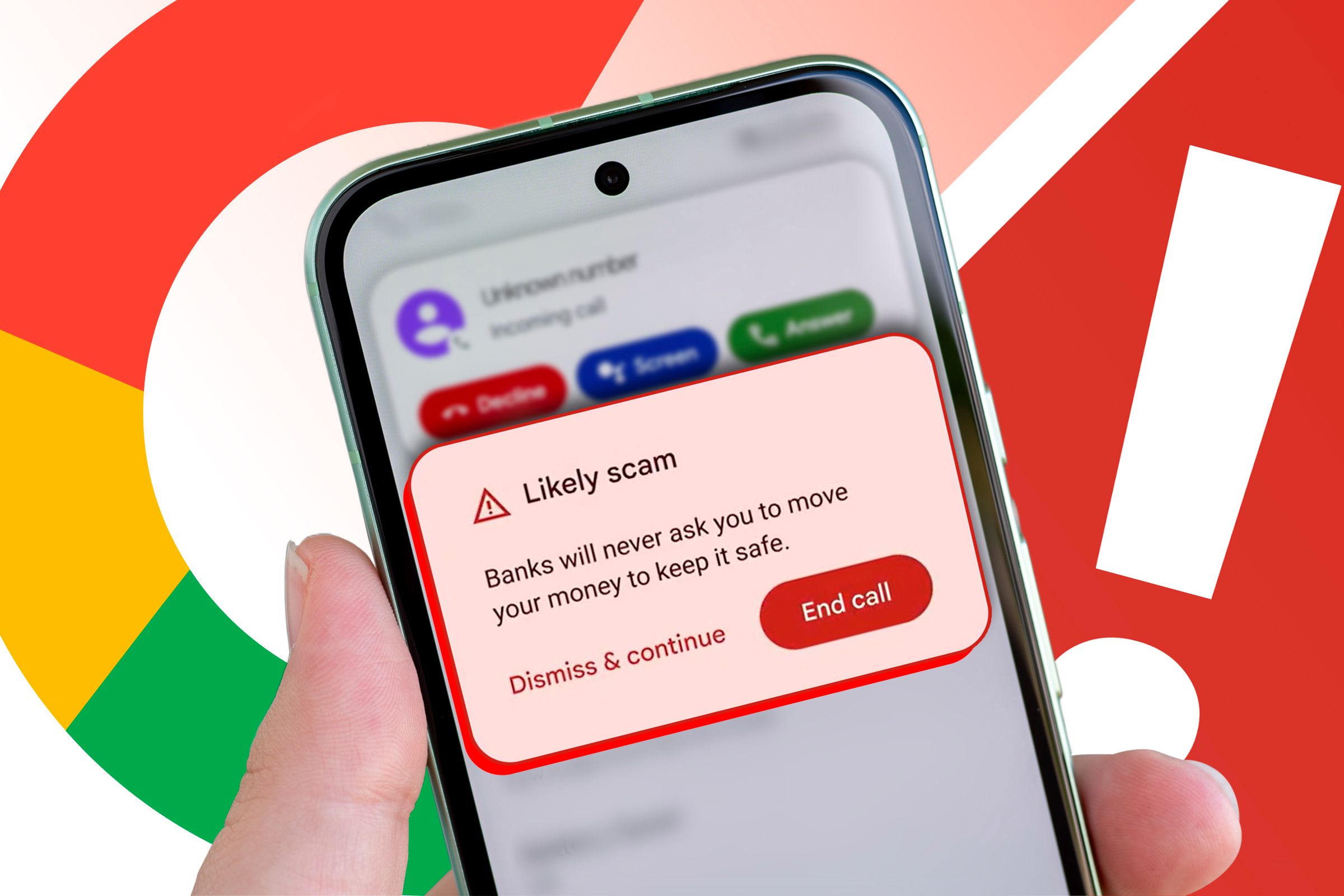Key Takeaways
- Google unveiled an AI scam call detection feature to protect users from phone scams in real time.
- The feature, powered by Gemini Nano, alerts users of potential scams during calls.
- Concerns about privacy vulnerabilities, misuse, and false positives may limit the feature’s adoption.
Google’s recent I/O 2024 conference was all about AI—the company proudly said “AI” 124 “times throughout its keynote (yes, you read that right). While the Mountain View giant showcased a ton of improvements to Gemini—its family of AI models—one feature caught our eye for its real-world usefulness: AI-powered scam call detection.
Let’s face it: phone scams are a pain. From annoying robocalls to sneaky impersonators posing as tech support or your bank, these scams can trick even the savviest users. Google’s new feature aims to change that by analyzing calls in real time and giving you a heads-up if something seems suspicious.
Google’s Onstage Demo Was Amazing
Dave Burke, Google’s VP of Engineering, showed how it works during the I/O event (timestamped video below). Onstage, he got a call from someone pretending to be from a bank, asking him to move his savings to a new account for safety. Burke’s phone popped up a notification saying, “Likely scam: Banks will never ask you to move your money to keep it safe,” with an option to hang up. Burke went on to explain that the feature is powered by Gemini Nano, which operates on-device without needing an internet connection. Pretty impressive, right?
So, who would benefit most from this tech? Well, pretty much everyone!
- Everyone: Real-time scam detection empowers you to be more cautious during calls and avoid getting tricked.
- Vulnerable Populations: The elderly and those less familiar with technology are prime targets for scammers. This AI protection can add an extra layer of security.
- People Prone to Emotional Manipulation: Scammers often use fear and urgency to pressure their victims. An AI alert can disrupt their tactics, giving you a chance to take a breath and avoid falling prey.
Potential Downsides and Misuse
Of course, with any new tech that analyzes conversations, privacy is a big question mark. While Google says everything stays on your device, some experts worry about potential vulnerabilities:
- Hacking: Although processing occurs on-device, there are fears that determined hackers or individuals with physical access to the phone could exploit this feature.
- Government and Surveillance Risks: Privacy advocates warn that government agencies or surveillance companies could misuse such technology to eavesdrop on private conversations.
- False Positives: There is also a risk of legitimate calls being flagged as scams, causing unnecessary alarm and potential inconvenience.
Albert Fox Cahn, executive director of the Surveillance Technology Oversight Project, voiced detailed concerns about the potential for abuse with Google’s AI scam detection feature. He emphasized that while the technology is designed with security in mind, it could open a Pandora’s box of surveillance and privacy issues.
Cahn pointed out the risks for vulnerable populations, including political rebels and individuals seeking medical privacy, such as those obtaining abortions. He warned that even on-device processing could be susceptible to intrusions, raising serious concerns about how secure and private our phone conversations truly are.
Google Needs To Ensure That the Feature Is Not a Privacy Nightmare
Here’s the thing: phone scams are a serious threat, and real-time detection can be a game-changer. Imagine the peace of mind that comes with knowing your phone will basically tell you, “Hold on, that sounds fishy!” This AI feature has a lot of potential. If Google can instill more confidence in us by proving that the feature is truly secure and divulging more information about its workings, it could truly revolutionize the fight against phone scams.
So, When Can We Get This Scam-Slaying Tech?
Unfortunately, Google hasn’t revealed an exact release date for the AI scam call detection feature yet. They did mention it will be opt-in, meaning you’ll have control over whether you activate it. We can expect more information about availability and how to enable it “later this year,” according to Google.

